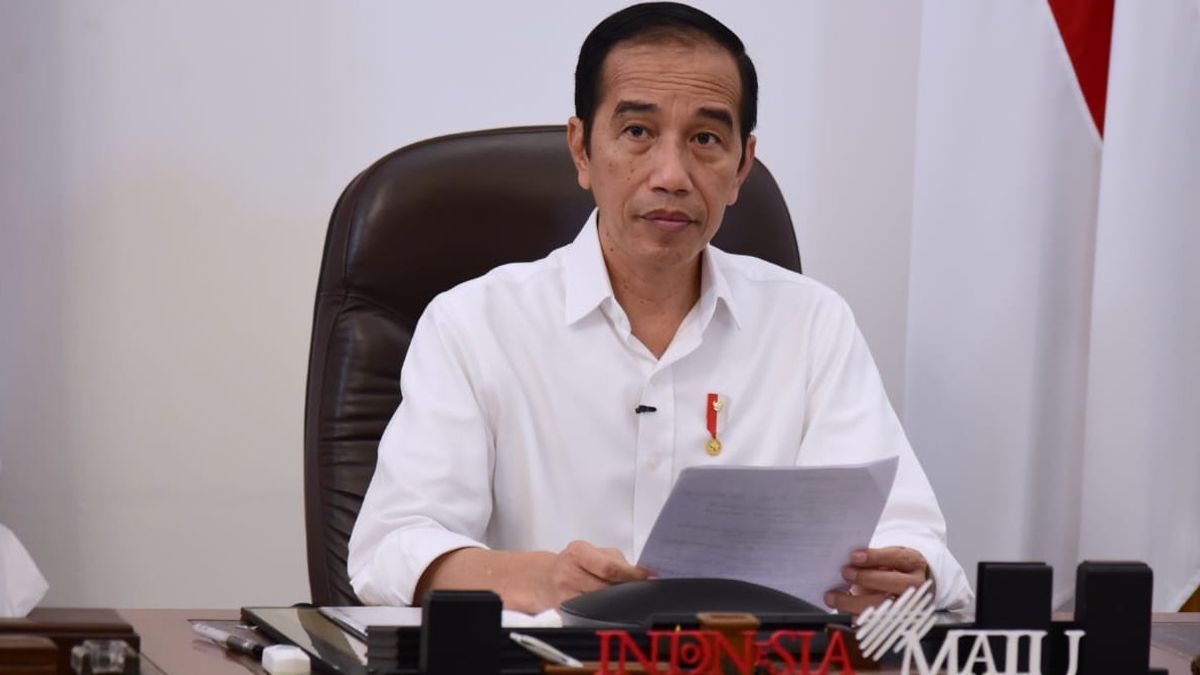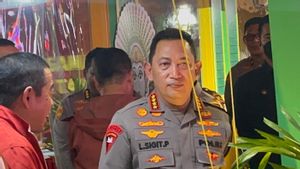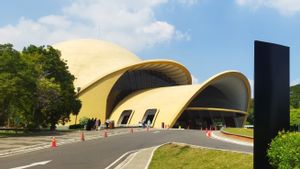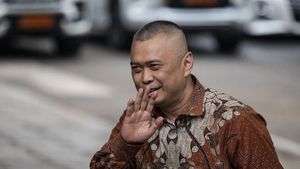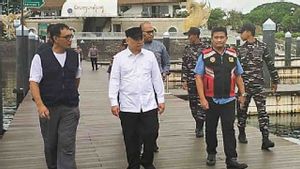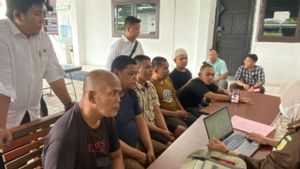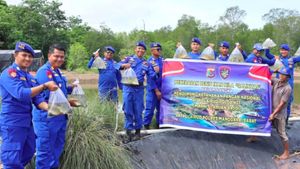JAKARTA - The number of people who tested positive for COVID-19 in Indonesia as of Tuesday, May 5 was 12,071 people. As many as 2,197 patients recovered, and 872 people died. Although the number of positive COVID-19 in the country is claimed to have decreased the rate of increase, but every day, the number of positive patients continues to increase.
According to the government, COVID-19 first entered Indonesia on March 2, 2020. For two months now, the government has continued to strive to stop the spread of the corona virus or COVID-19 which has spread throughout all provinces in Indonesia.
Suddenly, the health sector is the main focus of the government at this time. The Ministry of Health said that there are around 755 referral hospitals (RS) to handle COVID-19 patients scattered throughout Indonesia. Until now, there are 40,230 specialist doctors who are the last line of defense against this virus.
Secretary General (Secretary General) of the Ministry of Health Oscar Primadi said, of the total number of hospitals as many as 132 referral hospitals were determined through the Minister of Health Decree, namely Kepmenkes number 275 in 2020 and 623 hospitals were determined through a Governor's Decree which was set on May 1, 2020.
This means that 755 referral hospitals can still change with the aim of increasing access to COVID-19 services. So, it must be supported by the local government, human resources, infrastructure and other medical devices.
Of all the COVID-19 referral hospitals, there are 166,832 total beds and 11,002 isolation beds.
Meanwhile, said Oscar, there are 21 hospitals owned by the Ministry of Health, 10 hospitals owned by other ministries, 444 hospitals by local governments, 64 hospitals owned by the Indonesian National Police, 12 hospitals owned by BUMN and 204 hospitals owned by the private sector.

Oscar revealed, currently there are 40,320 specialist doctors in 2,867 Referral Hospitals. Meanwhile, the other health workers amounted to 2 million. Currently, there are also 11 thousand intership doctors in referral hospitals and health centers throughout the province. Meanwhile, the number of volunteers from professional organizations was 5,688 people.
"As of April 29, a total of 894 volunteers have been deployed, consisting of 729 professional organizations, 91 people from Indonesia for healthy individuals, 70 people from the Health Polytechnic of the Ministry of Health, and the Ministry of Education and Culture," he said in Jakarta, Tuesday, May 5.
Regarding the use of beds, continued Oscar, per April an average of 30 to 50 percent was met because of the reduction in other non-COVID-19 cases. In addition, several hospitals also use telemedicine services to provide patient and family services.
"Cooperation with start-ups or with regard to telemedicine has been carried out and this service includes remote health education services, online health counselors, home health checks and nursing services, home rapid tests, administration of drugs, directing patients who need to be referred to. health facilities or hospitals, "he explained.
Medical Personnel Death Budget
Medical personnel who fail to handle patients receive an award in the form of compensation for death. This is done by the government to encourage medical personnel in the fight against COVID-19.
Oscar said the budget for medical personnel death compensation prepared by the government amounted to IDR975 billion. As for the funds prepared, only about 1.39 percent has been used.
The Ministry of Health, Oscar continued, is also preparing a budget for private hospitals that handle COVID-19 patients. So far there have been submissions from 60 private hospitals that have submitted claims.
"We need to report here, claims have been made as many as 60 hospitals for 750 patients. Those that have been paid with down payments are 30 hospitals. Then today's payment plan is also carried out with 21 hospitals," he said.
Role of BUMN
State-owned enterprises (BUMN) play a role in the procurement of medicines for corona virus or COVID-19 patients. There are already three types of drugs produced by state-owned companies. Meanwhile, it is estimated that next year Indonesia will be able to produce vaccines.
Deputy Minister of BUMN Budi Gunadi Sadikin explained that the three types of drugs used to treat positive COVID-19 patients include antiviral, antibiotic and anti-inflammatory. The state-owned companies that produce it are Indofarma and Kimia Farma.
"For antiviral, we have produced oseltamivir. Indeed, we had difficulty in raw materials, because it was still imported from India and China, but we worked with Garuda to send charter aircraft carrying oseltamivir. So that the drug is sufficient for Kimia Farma and Indofarma to produce," he said.
Not only that, Budi said, Kimia Farma and Indofarma have also produced chloroquine and azhithromycin, which are antibiotic and anti-inflammatory drugs in large quantities. Both are also ready to distribute to all hospitals in Indonesia.

On the other hand, Budi said, BUMN also collaborated with LBM Eijkman and higher education research institutes to be able to participate both at the local and international levels. He said, at the international level, Bio Farma was included in the WHO solitaire group to be able to conduct clinical trials for the COVID-19 vaccine.
"We have also collaborated with Sinovac, a biotechnology company from China, which is the first to work against the COVID-19 virus and has also been active in world organizations regarding the epidemic of innovation in the vaccine sector," he explained.
COVID-19 Vaccine Available in 2021
It is estimated that the COVID-19 vaccine will only be available in early 2021. Minister of Research and Technology, Bambang Brodjonegoro said, vaccine discovery will take one year starting from March 2020.
"For the time being, it is still difficult to predict even though Eijkman said it would be one year from last March. Hopefully early next year there will be good news," he said.
Bambang said, the Eijkman Institute had also provided three whole genome sequencing (WGS) or genome-related data from their research to the Global Initiative on Sharing All Influenza Data (GISAID).
"These three WGS submitted by Indonesia to GISAID collect data from all countries in the world," he said.
However, said Bambang, based on information from the Head of Eijkman, Prof. Amin Soebandrio, the three genomes given by Indonesia were different from those in the world. So far, from GISAID information, there are three types of COVID-19 in the world, namely S, G, and V. Apart from that, there are other types that have not been identified.
"And it turns out that the 3 WGS that were sentenced to Indonesia are included in other categories," he explained.
Bambang emphasized that Indonesia will continue to send existing genomes for GISAID research. This step is the beginning of finding a vaccine. The first is to make a recombinant protein from WGS for further testing in animals.
"Then clinical trials in humans and tested on a production scale, we hope we can produce vaccines," he said.
According to Bambang, to accelerate the discovery of this vaccine, it is necessary to encourage cooperation with outside parties. So that vaccines can be found more quickly and can be immediately effective for viruses circulating in Indonesia.
The English, Chinese, Japanese, Arabic, and French versions are automatically generated by the AI. So there may still be inaccuracies in translating, please always see Indonesian as our main language. (system supported by DigitalSiber.id)
